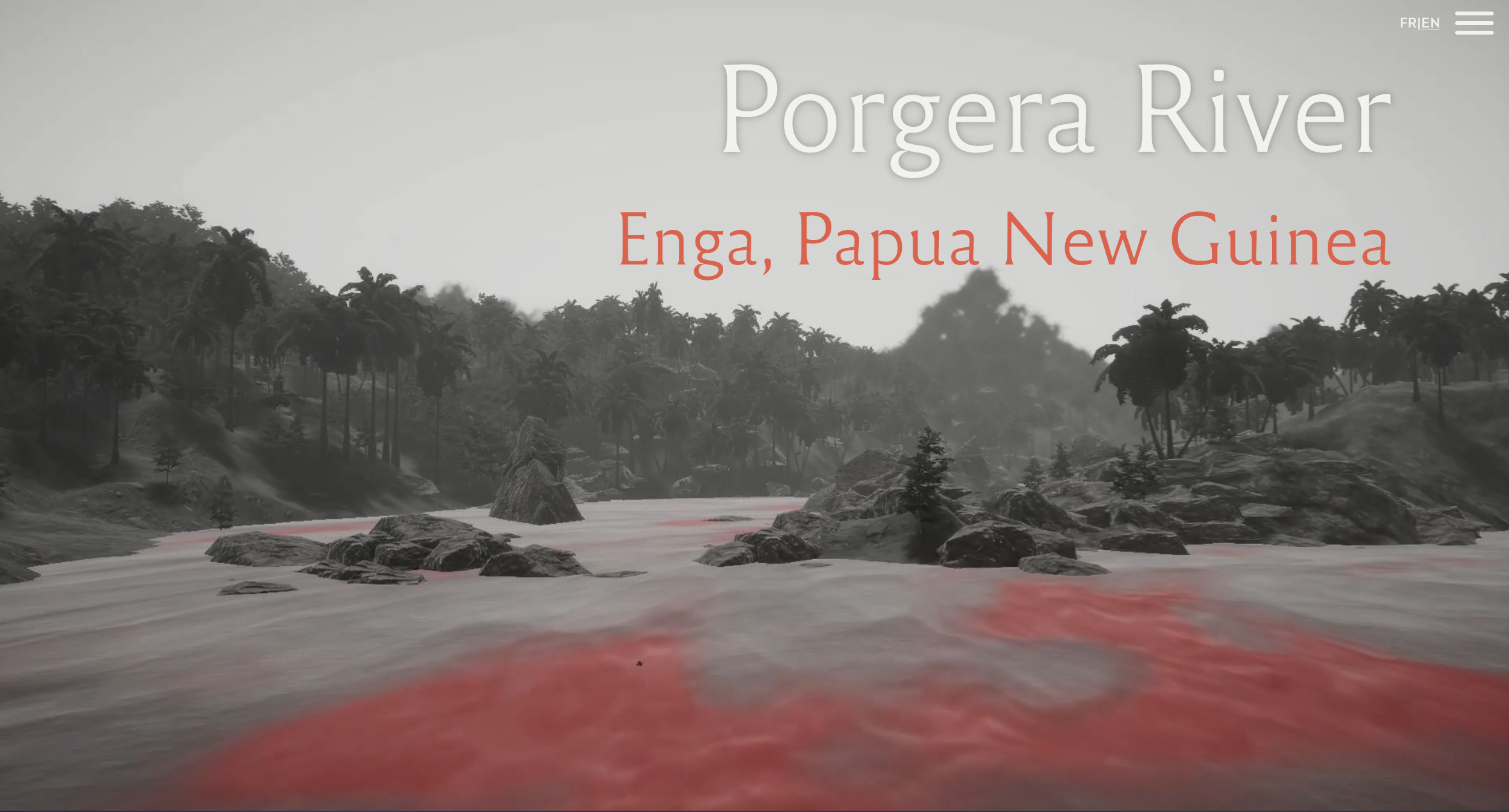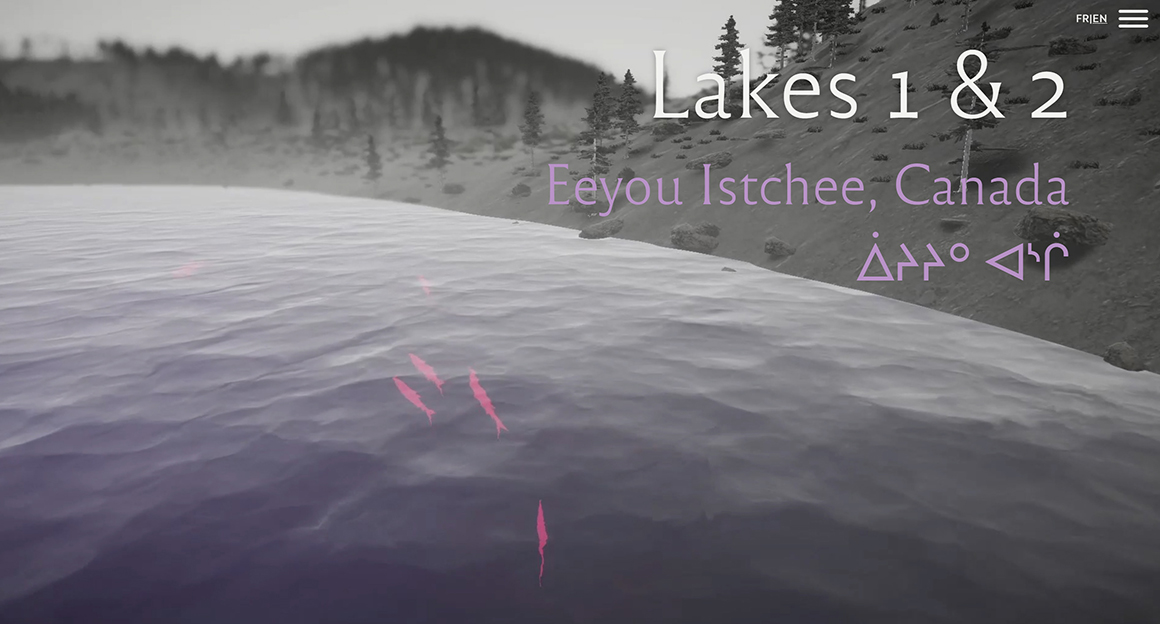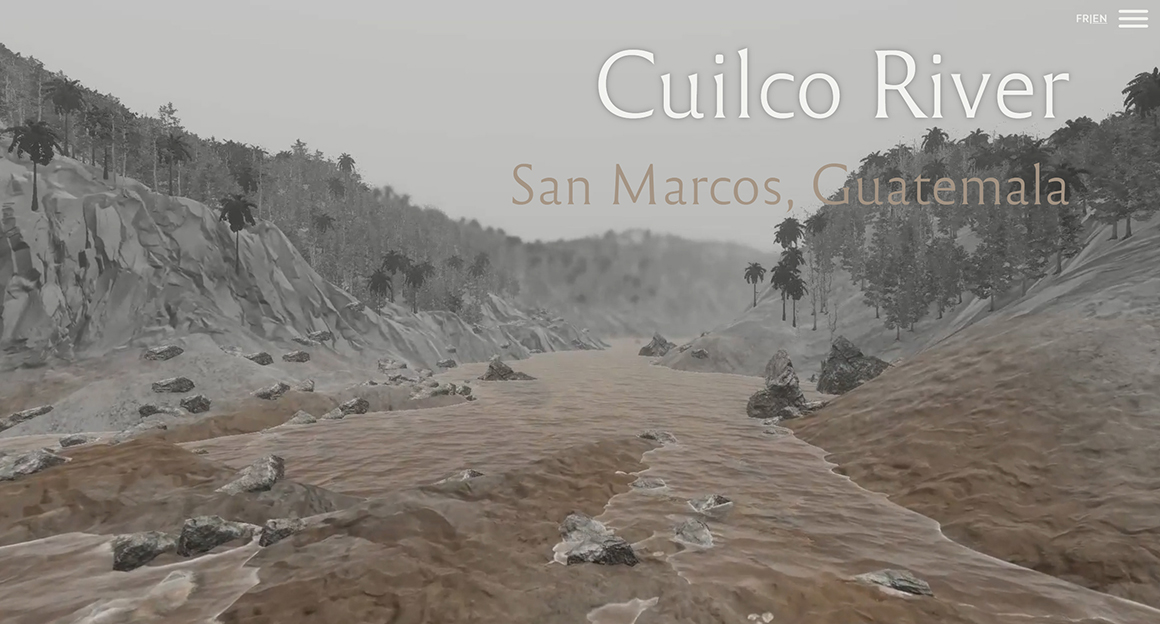Launch of Rules of Extraction
Tuesday, October 26, 2021
12:30 PM EST
In English
Free, Online
Zoom, YouTube
Join Maddy Capozzi and Joëlle Dubé, participants to the Expanding Exhibition residency 2021, for the launch of their web-based project, Rules of Extraction. Expanding on the exhibition World of Matter: Exposing Resource Ecologies, presented at the Leonard & Bina Ellen Art Gallery in 2015, Rules of Extraction presents a methodology that ‘thinks with water’ and invokes Gayatri Spivak’s notion of planetarity in order to unpack the extraction and dispossession perpetuated by Canadian mining companies.
Capozzi and Dubé will be joined by Caroline Desbiens, professor of geography at l’Université Laval and author of Power from the North: Territory, Identity, and the Culture of Hydroelectricity in Quebec (2017), for a conversation on the forms of research and representation required in order to gain a critical view on resource extraction.
Bio
Caroline Desbiens is Professor in the Department of Geography at Laval University and holder of the Canada Research Chair in Indigenous Heritage and Tourism. Her research focuses on memory and the sense of place, intercultural relations and the visibility of Indigenous cultural landscapes in northern Quebec, particularly in connection with the development of resources. Among her current projects, she is collaborating with the Innus of the Lac-Saint-Jean and the Côte-Nord regions (Quebec) to document various cultural landscapes impacted by the building of dams. She is also interested in toponymy and the visibility of Indigenous peoples in heritage landscapes, including in urban settings.
Ms. Desbiens has been a guest professor at the University of Bergamo (Italy) and Bordeaux (France), Scientific Advisor at the Musée de la Civilization (Quebec) and Commissioner at the Commission de toponymie du Québec. Her book Power from the North: territory, identity and the culture of hydroelectricity in Quebec (UBC Press 2013) was published in French by the Presses de l’Université Laval in 2015 and was a finalist for the Canada Prize in the Social Sciences.











